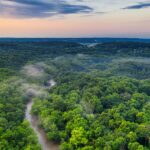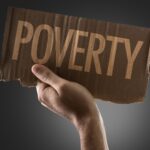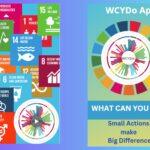“I will always check that the seafood I buy comes from sustainable sources”
As we come closer to the delivery of our WCYDo App, where you’ll be able to select your own Actions taking you towards your chosen goal, we are currently working on effective ways to maintain your motivation! We recently re-worded our actions to be more assertive, eg. from ‘Buy fair trade…’ to “I will buy fair-trade…” helping to give App users a helpful kick up the bum! Upcoming blogs are going to focus on how the Actions you select in the App can be carried out. Today, I’m focusing on Life Below Water (SDG 14).
What we learned from Seaspiracy, and facts about the ocean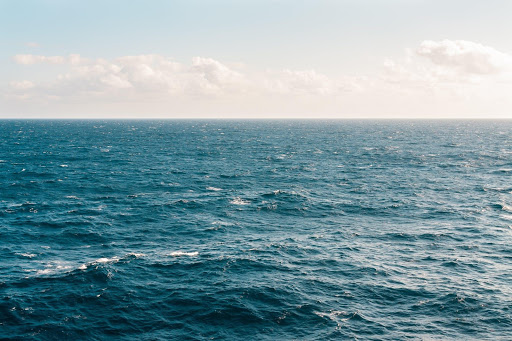
The vast blue ocean that divides our lands is a beautiful and mysterious world within itself. Sadly human activity has, like most gifts, used it as an infinite resource for more consumption. A recent Netflix documentary, Seaspiracy, shone a dark light on the horrific consequences of marine fishing. Showing the inhumane slavery used in fishing industries, the fake pink colouring of pale grey salmon. How fishing activities such as shrimp farming have huge knock-on effects to deforestation and other species endangerment. How a garbage truckload of plastic is dumped in the sea every minute – 46% of the plastic in the Great Pacific Garbage Patch is fishing nets(!) – and over 300,000 whales and dolphins are unintentionally killed as “by-catch” each year and last but not least, sustainable fishing stamps on tuna (tinned or fresh) are simply not guaranteed.
The ocean is super important as it produces ‘over half of the world’s oxygen and absorbs 50 times more carbon dioxide than our atmosphere. It actually covers 70 percent of the Earth’s surface and the sea is the key player in regulating our climate and weather pattern. So we’ve got to protect it, and we’ve got to do so quickly!
Seaspiracy says ‘one of the greatest threats to our oceans is not from plastic straws – which make up about 0.03% of plastic entering our oceans – but fishing nets’. At the end of the day, fishing nets are used because we buy fish.
Decent Work and Economic Growth (G8)
When we say ‘fisherman’, there is a romantic view of a wholesome group of singing, pole-lining fisherman going out on wooden boats, but the reality is when we say ‘fisherman’ we are talking about employees (and sometimes slaves) of industry giants with huge metal ships going out to sea and taking more than we need. Of course, people are a big part of the sustainability of the world and have to be considered. If we all swung to the extreme of not eating fish, jobs would be lost. So to help maintain jobs, we must pay really close attention to where we’re buying our fish, what businesses we’re supporting, and the information behind the source.
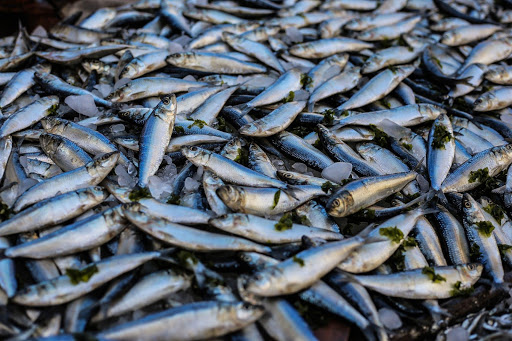
What Can You Do?
Sure, you could buy more sustainable fish. But what is sustainable fish…really? In an ideal world, sustainable fishing would mean fair-trade businesses that pay a fair wage, and pole lined fish (as to not lose nets in the ocean and other unintended consequences). We wouldn’t waste and only take the needed amount of fish, leaving enough behind to continue the ocean eco-system. But as we stated before, sustainable labels aren’t guaranteed and farmed salmon isn’t exactly healthy!
The best way to save the ocean is simple, leave it alone. What’s more sustainable for Life Below Water (and ultimately ourselves) than quitting, or at least reducing our fish intake?
I know what you may be thinking, “yet, another thing I have to give up”. It is sad, but when become more conscious consumers, we alter the demand and make space for new companies to emerge who provide more ethical choices for us.

When we’re heading towards empty oceans by 2048, we need to consider the big question: What do we really need from this scaly, wet, sentient species? Well, it’s mostly protein, omega, and something to complement chips. When it comes to protein, there are many equally nutritious alternatives such as various beans, peas, eggs, oats, and soy. When it comes to Omega 3, you can buy effective alternatives made from Algae Oil, they are a plant-based omega that comes directly from the seaweed – you can Google this, I highly recommend it! And when it comes to the chips…well, I’ll leave that to you to be creative – ever had Vegan ‘Tofish & Chips’?
We’d love to know your thoughts on the subject! Do you have any alternatives you recommend or ideas on how to be more sustainable?
Best
Eliza
May 2021
References:
https://oceanservice.noaa.gov/facts/why-care-about-ocean.html
https://earth.org/facts-from-seaspiracy/
https://www.mcsuk.org/goodfishguide/
Do you agree? Tell us what you think – email: tellus@whatcanyoudo.earth or via our “Social Media Channels” (Top Right of our landing page)
“tellus” is a Latin word meaning “Earth” e.g. Tellus Mater the ancient Roman Earth Mother Goddess


